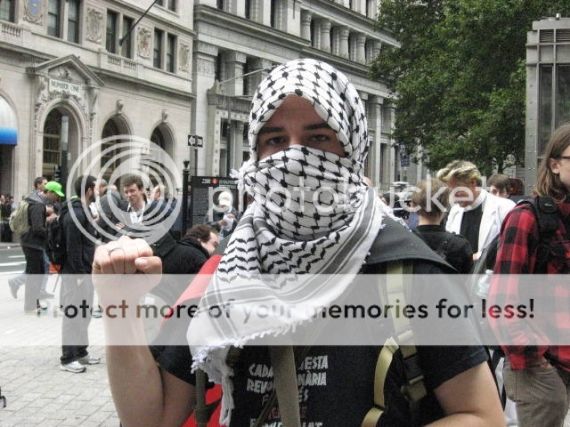Later, non-whites, specifically blacks, were seen as the most likely group to overturn the existing order. But while there have been flare-ups over the decades, the ultimate race war never really broke out. In the United States, race relations and racial equality under the law has mostly been a gradual, legal and relatively peaceful process. No cataclysmic upheaval.
Nowadays, the great hope for the destruction of the West lies with radical Islam. It's ironic that Islamofascism - the Left's last best hope of destroying our Judeo-Christian culture - is hardly a friend of the Left's stated value system. But left-wingers don't think that far ahead. They only dream about destruction, which they feel must come first, before they can create their utopia on Earth.
My point is this: They see radical Islam as the enemy of their enemy, which is why they support it. This is the answer to the question posed in the article below.
Why aren't liberals more critical of Islam?
Liberalism is an essentially secular movement that began within Christian culture. (In Worshipping the State, I trace it all the way back to Machiavelli in the early 1500s.) Note the two italicized aspects: secular and within.
As secular, liberalism understood itself as embracing this world as the highest good, advocating a self-conscious return to ancient pagan this-worldliness. But this embrace took place within a Christianized culture. Consequently liberalism tended to define itself directly against that which it was (in its own particular historical context) rejecting.
Modern liberalism thereby developed with a deep antagonism toward Christianity, rather than religion in general. It was culturally powerful Christianity that stood in the way of liberal secular progress in the West—not Islam, Buddhism, Hinduism, Shintoism, Druidism, etc.
And so, radical Enlightenment thinkers like Voltaire rallied his fellow secular soldiers with what would become the battle cry of the eighteenth-century Enlightenment: écrasez l'infâme, "destroy the infamous thing." It was a cry directed, not against religion in general, but (as historian Peter Gay rightly notes) "against Christianity itself, against Christian dogma in all its forms, Christian institutions, Christian ethics, and the Christian view of man."
Liberals therefore tended to approve of anything but Christianity. Deism was fine, or even pantheism. The eminent liberal Rousseau praised Islam and declared Christianity incompatible with good government. Hinduism and Buddhism were exotic and tantalizing among the edge-cutting intelligentsia of the 19th century. Christianity, by contrast, was the religion against which actual liberal progress had to be made.
So, other religions were whitewashed even while Christianity was continually tarred. The tarring was part of the liberal strategy aimed at unseating Christianity from its privileged cultural-legal-moral position in the West. The whitewashing of other religions was part of the strategy too, since elevating them helped deflate the privileged status of Christianity.
And so, for liberalism, nothing could be as bad as Christianity. If something goes wrong, blame Christianity first and all of Western culture that is based upon it.

No comments:
Post a Comment